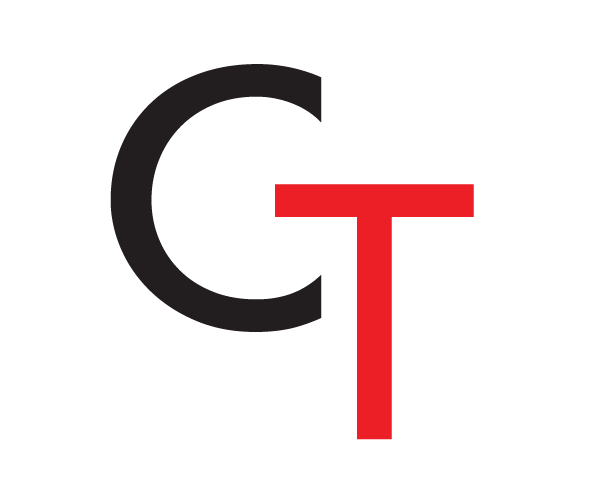The off-season is a bit of a strange time for squash players.
Some players use it to train hard and prepare themselves for the following season, whilst others use it to have a break from squash and enjoy the hot weather.
There's no one-size-fits-all approach to tackling the off-season and it depends fully on what your goals are, but I thought it would be interesting to go through what some of your options are and also to give some advice based on my previous off-season experiences, and finally to talk a bit about my plan for the off-season.
The off-season presents an opportunity to recharge our physical and mental batteries, allowing us to return to the court rejuvenated and refocused.
Depending on how often you've played during the season, many players will be a bit tired of squash which is absolutely understandable.
If you play 3+ times per week like me, but don't necessarily want to keep doing that during the Summer (also like me), chances are you want a bit of a break from the sport.
More casual leisurely players who maybe play a friendly match or two per week are perhaps more likely to want to carry on doing this throughout the Summer time as they'll be at a lower risk of burnout.
Then, there are players who may be wanting to train hard throughout the off-season and take the sport a little more seriously to give them a leg up for the upcoming season.
Whichever of the above you fit into, there are a few pieces of advice that I can give that I think apply to everyone.
Embrace Rest and Recovery
The off-season is the perfect time to give your body and mind the rest it deserves.
It's important to allow yourself time to recover both physically and mentally.
Even if you want to keep playing through the off-season, it can be really helpful to engage in other activities you enjoy too, just to mix things up a little.
Exploring new hobbies and sports can help you stay fit without you having to risk getting squash burnout by playing too much during the off-season.
At the risk of sounding biased, I can highly recommend tennis and pickleball as outdoor sports that you can do to maintain your hand-eye coordination, fitness, and happiness!
Personally, I absolutely love running, and, even though I live in the United Kingdom, we do still get some decent weather in the Summertime, and I will definitely be making the most of it by getting some nice runs in.
Rest is an essential part of the training process and it can help you feel refreshed and prepared for the season ahead.
It's quite common to feel a small amount of guilt for not training or not exercising enough, but, if you've had a heavy season, a good bit of rest may well benefit you more in the long run.
Yes, your racquet skills and shot accuracy may take a bit of a hit, but they will come back with time, and, with proper rest, I believe you're much more likely to get more enjoyment out of squash when you come back to it.
Reflect on the Past Season
The off-season provides a great opportunity to reflect on your achievements and challenges, and also identify some areas for improvement from the past season.
Evaluate your performance objectively and identify areas of your game that require attention. Set specific goals for the upcoming season, focusing on aspects of your game you want to develop.
Remember not to be too hard on yourself, it can be easy to fall into the trap of beating yourself up over bad results or problems with your game, but that's not constructive at all!
Try to get a healthy balance between thinking about the achievements you're proud of from during the season (whether that's a good result or a team win of some sort) and the areas you'd like to improve upon (which could be consistency, shot selection, or fitness).
Personally, I'm quite proud of the season I've had. I actually missed most of the first half as I was away travelling, which was awesome, but coming back after not playing squash for 5-6 months was very challenging.
At first, it was very frustrating as my fitness and shot consistency had taken a big hit, however, I trained quite hard to get back on-form and, although I had some poor results early in the second half, I saw my game get back up to scratch in the month or two after Christmas.
I was training a lot and was lucky enough to have the opportunity to train and play against a large number of new players which has really helped my game.
My biggest achievement actually came right at the end of the season, so it felt like that was what I had been working towards (you can find out more about that win if you read my recent article on my experience at the 2023 Danny Gamble Squash Open).
Regarding what I need to improve, I think my grit and patience is next for me. Generally, I tend to have a few big long rallies before getting impatient and going for winners too early on, so I'd like to work on that for next season.

Maintain a Healthy Balance
Again, it's important not to feel obliged to play squash during the off-season. Allow yourself the freedom to explore other interests and pursue a balanced lifestyle.
However, keep your goals in mind and consider incorporating cross-training activities that enhance your squash game, such as strength training, flexibility exercises, or cardiovascular workouts.
If you're keen to keep playing once or twice a week to make sure you're not too rusty when the new season arrives, that's absolutely fine, but, try to be aware of when you're pushing it too far!
A good friend of mine who falls into that last category of players who take the sport pretty seriously was telling me about the struggle he had last off-season.
He trained very hard over the off-season, particularly towards the end of it, in preparation for some big tournaments at the start of the season.
He got very fit, and he was definitely playing well, but he said that when it came to actually playing in those tournaments, he was so burnt out that he couldn't even enjoy his matches enough to put his heart in and grind out wins that he should have got.
He's a very skilled and experienced player, so it just goes to show that anybody is capable of pushing themselves too far which ends up being counter-productive in the long run.
If you get that balance right and do not overdo it, you should return in the new season feeling excited to get back on court.
Create a Personal Off-Season Plan
It can be very helpful to consider your goals and needs for the upcoming season and then tailer your off-season training to that.
If you're just looking to stay somewhat fit and keep your body prepared for playing competitive squash again, perhaps you just need to play a friendly or do some light drills once per week.
If you're wanting to get off to a good start as soon as the new season begins, then maybe you need to play a little more and create a more specific training plan that includes rest days, targeted workouts, and drill sessions.
The next level up from that if you're wanting to come back in the new season as an improved player, then your training will need to include squash-specific strength and fitness workouts, flexibility training, as well as all of the above (friendlies, drills, and rest days).
If you have access to coaches or trainers, or know some more experienced players, seek guidance from them, I would imagine that anybody will be kind enough to give you a few words of advice.
You can use this to design a program that aligns with your goals and ensures you'll be prepared for the upcoming season, without going too overboard on the squash itself.
My Off-Season Plans
As I write this, it's a Friday afternoon, the sun is shining, and it's about 26°C (which is quite rare for this time of year in the North-East of England), and I can't wait to go out for a run and then walk the dog.
So far this off-season, I've been playing squash around twice per week, however, when this weather came around, I didn't want to waste it so I've been doing many more outdoor activities like football on the beach, tennis, and even a bit of cycling.
I know the weather won't stay consistent this way for too long, so I like to make the most of it. The forecast says that next week will be a little more overcast, so I'll probably be hopping back on court and doing some drills and friendlies around then.
I've been doing drills that align with my goals of being more patient and consistent, these mainly consist of length games and conditioned games that encourage me to only take the ball in short at the right time.
I've entered a few tournaments next season that I'm very excited for, and, I'm actually doing a team event called Squash Junkies in Amsterdam at the end of July which should be great fun too!
I am incorporating these tournaments into my training plan to make sure my body and shots are prepared well in advance.
Squash Junkies is more of a social event, however, there will be some very high-standard players attending, so I'm very excited to see (and hopefully play) some great squash, as well as to meet some new people.
But, the tournaments after that are more competitive and I'd like to be as prepared as possible for them.
As the new season creeps closer, I usually start to play more and more until I'm back to playing about 3 times per week as the first team matches of the season start to begin.
This way, my body is ready for competitive matches, and my shots are hopefully up to scratch too.
I appreciate that my plan isn't particularly specific, but that's just how I like to do things in the off-season. It's a time for me to relax and not think too much about squash so I can focus on other things.
It might look completely different for you, but, I still hope you've taken something from this week's newsletter.
I think the main points are that it's important to be ready for the new season (especially if you don't want your body to be too sore after that first match back), but, it's even more important not to overtrain and burn yourself out so much so that you're dreading the start of the new season.
This article was taken from our On The 'T' Newsletter, if you're interested in receiving more content like this, please feel free to sign up using the subscribe section located at the bottom left of this page (or underneath the article if you're on mobile), thanks!
